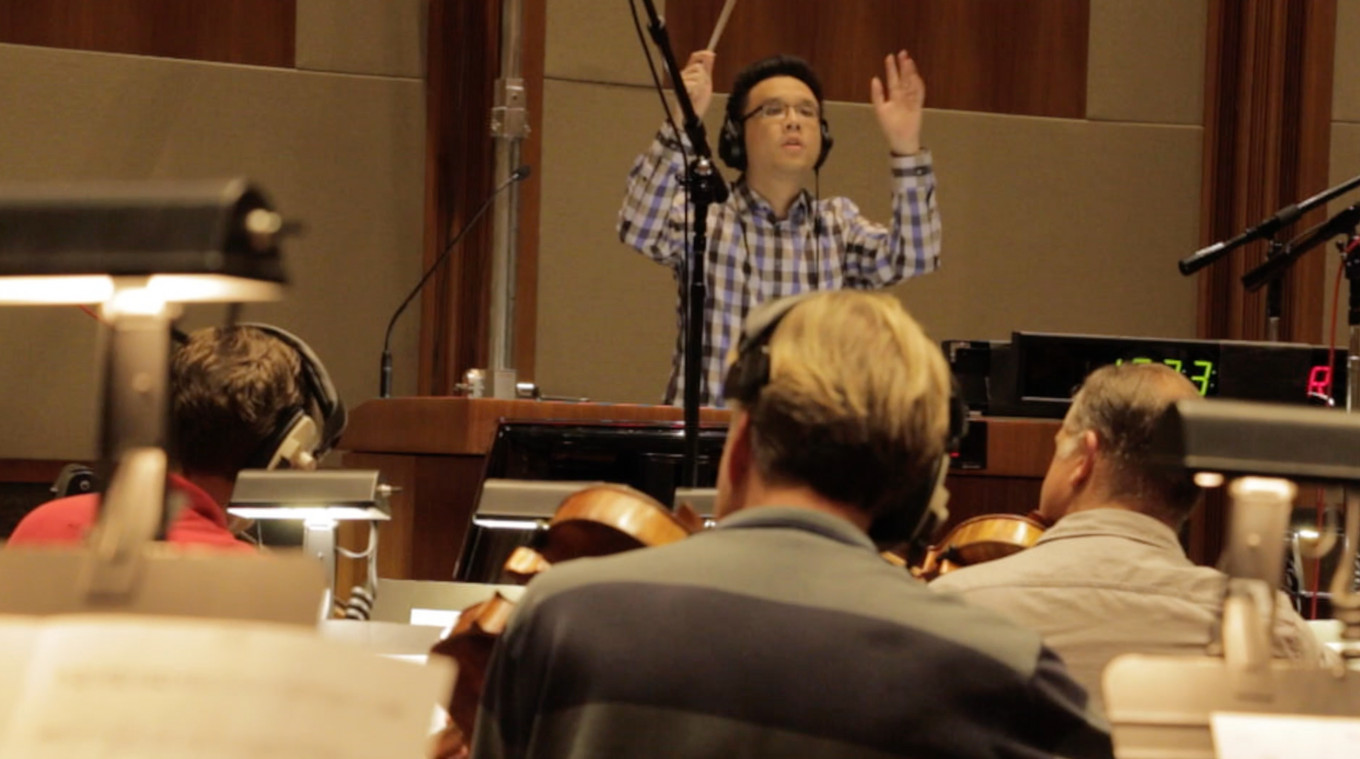Popular Reads
Top Results
Can't find what you're looking for?
View all search resultsPopular Reads
Top Results
Can't find what you're looking for?
View all search resultsMusician Peter Jonatan: Readjusting classical music
Peter says an abundance of talented musicians and singers can be found in Indonesia but that many have an insufficient musical education.
Change text size
Gift Premium Articles
to Anyone
P
eter Jonatan, an Indonesian composer, arranger, orchestrator and educator, earned his PhD in jazz studies from the New England Conservatory of Music (NEC) late last year, making him one of the first Indonesian musicians to possess such a high degree in jazz music. He also finished his graduate study at the same institute in 2014 and currently teaches at the NEC.
In a recent conversation with The Jakarta Post, Peter shared that his long experience with jazz and classical music began when he was 4 years old. He had always shown interest in other genres of music as well, and his introduction to church pianist Priscilla Dianawati expanded his perspective beyond the genre he later mastered.
Ibu Diana, as Peter calls Priscilla, became his teacher for six years starting in 1996. From her, Peter learned how to accompany church and choir music. He also studied at Yamaha Music School Indonesia (YMI) for five years, and then at Yayasan Pendidikan Musik (YPM) for another five.
Peter says an abundance of talented musicians and singers can be found in Indonesia but that many have an insufficient musical education and rely on natural talent alone. They also study music very late compared to children in the US. This explains, he says, why few Indonesian musicians can survive and succeed for a long period of time.
Studies at Nanyang Technological University
Born in Jakarta, on July 25, 1983, Peter finished high school in Jakarta in 2002. He continued his studies at Nanyang Technological University (NTU) in Singapore in 2002 and earned his undergraduate degree in Materials Engineering in 2006. He was offered the opportunity to continue his studies in Materials Engineering at the PhD level with a full scholarship. He had his eyes set on becoming an engineer and eventually a university lecturer and researcher.
But he was also still eager to pursue his musical dreams. He consulted and talked to those closest to him, particularly his parents. They all concluded that a musician was not a promising profession at all and preferred that Peter become an engineer because he was a graduate of a top university.
Going to Berklee College of Music
Three years after his graduation from NTU he decided to pursue his childhood dream of becoming a musician. He chose Berklee College of Music in Boston as his next destination. He became an undergraduate student for the second time.
“Performance and composition are the two most popular programs. But at Berklee there are many more programs, like sound engineering. Students learn how to make mixes and to manage sound systems. Then there is therapy music for hospitals and sound design,” Peter said.
In his second semester, Peter picked jazz composition as his major, although he had only a limited knowledge of the genre. In Berklee there are two choices of composition major: classical music and jazz.
“In jazz, we have to be creative, and we have to develop what has been written.”
Move to the NEC
Peter graduated in 2011 and planned to work as a composer. Realizing he was still totally unknown in the US, in 2012 he decided to pursue further studies at the NEC, also in Boston, because Berklee did not have a postgraduate program. The conservatory is ranked 4th or 5th in the world. It is also unique because 80 percent of its students study classical music. It acts as a training ground for cellists, violinists and contrabassists.
He graduated in 2014 and went directly on to the PhD program. He only finished it in 2020 because he was also asked to teach there. He finished his studies late last year. His dissertation was on jazz composition.
Readjusting classical music
In discussions with professors and other lecturers, Peter proposed a readjustment of the curriculum because he felt it was outdated. “If we only teach classical music, without combining it with modern development, we will not be able to compete with more modern universities. My idea was accepted – everyone agreed. Then we redesigned the curriculum to include music technology,” said the lecturer.
“[We need to] master technology especially during this pandemic, the Zoom era, where people collaborate through online media,” Peter said. “If they do not know [computer-based music] editing, we must try to integrate music technology into curricula with classical music.”
Classical musicians are often uninterested in non-classical music. According to Peter, classical music is experiencing a market reorientation. The market for classical music will remain forever, but it will be limited, he believes. Peter said the genre should grow “to relate more to the current world”.
Indonesian music
Many musicians and singers still have difficulty reading musical notation, Peter said. So how they can play music when they cannot read notes? Many Indonesians are talented musicians. But to reach out to a wider audience, they must master theory and not just depend on their self-taught skills.
“If you just want to play in a café, it is not necessary for you to learn further [skills and theory]. But if you play with 15 people, you cannot play alone, and there should be sheet music.”











